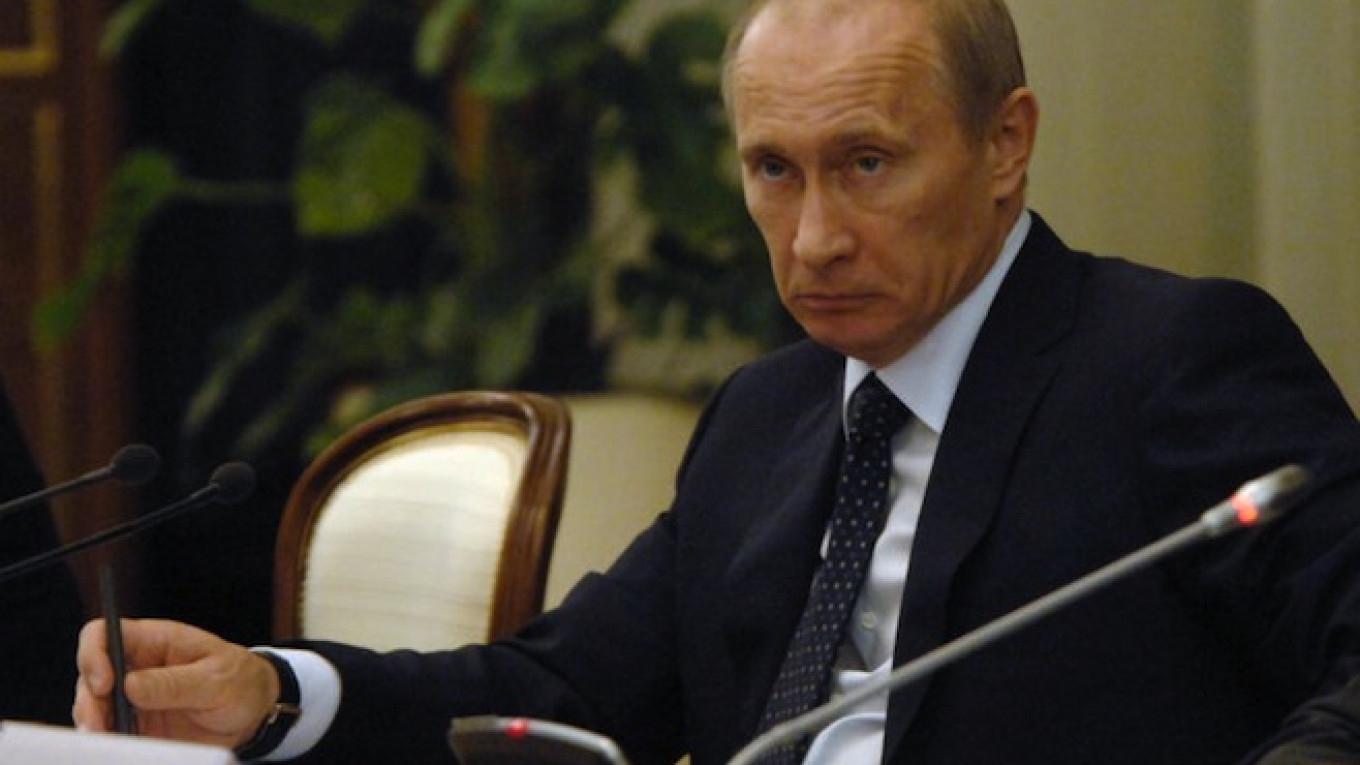The Kremlin's spokesman has dismissed as "rubbish" a newly released Pentagon study that claims Russian President Vladimir Putin could suffer from Asperger's syndrome, a news report said.
Presidential spokesman Dmitry Peskov on Thursday denounced the study, reported by USA Today this week, as "rubbish, unworthy of commentary," Gazeta.ru news portal reported.
The Gazeta report cited a psychiatrist, Pavel Beschastnov, as saying that Asperger's syndrome — a form of autism that makes social interactions difficult for those who have it — cannot be diagnosed through remote observation.
"Watching a person from a distance, as opposed to direct communication, you see only one side of his behavior," Beschastnov was quoted as saying. "No experienced doctor would make [such a] diagnosis, understanding that it is all speculation, because you don't know how the person lives, how he acts outside of television cameras' view."
The study for the Pentagon think tank Office of Net Assessment admitted the researchers' "hypothesis" that Putin had Asperger's syndrome could not be proven without performing a brain scan on the Russian leader, USA Today reported.
One of the researchers cited in the study, Dr. Stephen Porges, a psychiatry professor at the University of North Carolina, has distanced himself from the diagnosis, saying he never saw the finished report, USA Today said.
Porges said he had recommended that U.S. officials find quiet settings for their meetings with Putin, arguing that the Russian president's behavior and body language indicated that he adopts a defensive attitude at large gatherings, according to USA Today.
"If you need to do things with him, you don't want to be in a big state affair but more of [a] one-on-one situation someplace somewhere quiet," Porges was quoted as saying.
Russian political analyst Alexei Makarkin said the claim about Putin and Asperger's "should not be taken too seriously," Gazeta.ru reported.
Makarkin argued that the release of the Pentagon report was intended to make Putin look "yet more odious" at a time when the U.S. is considering arming Kiev government forces.
"This is part of the standoff between Russia and the U.S., which is sharply growing," Makarkin was quoted by Gazeta.ru as saying.
The report was intended to show that the "Russian president has this problem, so it's impossible or at least difficult to negotiate with him, and that [the standoff] is not about geopolitics, but about psychology," Makarkin said, Gazeta.ru reported.
A Message from The Moscow Times:
Dear readers,
We are facing unprecedented challenges. Russia's Prosecutor General's Office has designated The Moscow Times as an "undesirable" organization, criminalizing our work and putting our staff at risk of prosecution. This follows our earlier unjust labeling as a "foreign agent."
These actions are direct attempts to silence independent journalism in Russia. The authorities claim our work "discredits the decisions of the Russian leadership." We see things differently: we strive to provide accurate, unbiased reporting on Russia.
We, the journalists of The Moscow Times, refuse to be silenced. But to continue our work, we need your help.
Your support, no matter how small, makes a world of difference. If you can, please support us monthly starting from just $2. It's quick to set up, and every contribution makes a significant impact.
By supporting The Moscow Times, you're defending open, independent journalism in the face of repression. Thank you for standing with us.
Remind me later.


